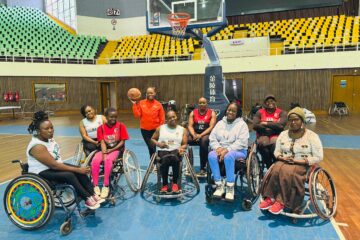Is it easy? How does paraplegia affect daily life? Does it get better with time? These are questions we have all asked ourselves at some point in our paraplegic journey. It might have been the first time you were told you would never walk again or during your recovery or maybe you are just curious and wondering how does it happen. Is it a gradual process or do you just wake up one day and realize that you have overcome all the hurdles?
Living with paraplegia is a journey filled with both significant challenges and remarkable adaptations. I have experienced firsthand the complexities that come with paraplegia. Like many others, my story is one of resilience, adaptation, and the relentless pursuit of a fulfilling life despite the physical limitations imposed by this condition.
How Does Paraplegia Affect Daily Life? The Initial Shock
Picture this, one minute you have your life in order. You have a goal, a dream or a vision. The next minute, your life is turned around. You have no idea how long you will be in the hospital; you don’t know whether you will ever sit again or even stand. You are confused and have no idea what to do. What happens next?
The initial diagnosis of paraplegia can be overwhelming. It is a moment when your entire world shifts, and you are faced with a future that looks drastically different from what you had imagined. The physical inability to walk, coupled with the emotional and psychological impact, is profound. The first challenge is coming to terms with this new reality and finding the strength to move forward.
How Does Paraplegia Affect Daily Life? Physical Challenges
Paraplegia affects every aspect of daily life, from mobility to personal care. Simple tasks that were once taken for granted become significant hurdles.
Mobility
Moving from one place to another is no longer a simple act. It involves the use of a wheelchair, which requires strength and coordination. Navigating through spaces that are not wheelchair-friendly can be frustrating and exhausting. Public places, homes, and workplaces often lack the necessary accommodations, making accessibility a constant concern.
Personal Care
Personal hygiene and grooming take on a new level of complexity. Tasks such as showering, dressing, and using the bathroom require assistance or adaptive equipment. The loss of independence in these intimate activities can be disheartening.
Pain and Discomfort
Chronic pain and discomfort are common companions for those with paraplegia. Pressure sores, muscle spasms, and nerve pain can make daily life uncomfortable and challenging. Managing these conditions often involves a combination of medications, physical therapy, and careful monitoring.
How Does Paraplegia Affect Daily Life? Emotional and Psychological Impact
The emotional toll of paraplegia is significant. Feelings of anger, frustration, confusion, helplessness and sadness are natural responses to the loss of mobility and independence.
Grieving the Loss
There is a period of grieving for the life that was once lived. The what ifs, the uncertainties and wish that life wouldn’t have changed. Accepting the limitations imposed by paraplegia is a gradual process that requires emotional strength, a community and resilience.
Mental Health
Depression and anxiety are common among individuals with paraplegia. The isolation and dependence on others can exacerbate these feelings. It is essential to seek mental health support to navigate these emotional challenges.
How Does Paraplegia Affect Daily Life? Adaptations and Coping Strategies
Despite the challenges, life with paraplegia is not without hope and joy. There is so much to being a paraplegia than being on a wheelchair. With time, individuals find ways to adapt and lead fulfilling lives.
How do we do this? How does one adapt to being a paraplegic?
Assistive Technology
Advancements in technology have made a significant difference in the lives of those with paraplegia. Wheelchairs have become more sophisticated, offering greater mobility and comfort. Adaptive devices for personal care, communication, and daily tasks provide a sense of independence.
Home Modifications
Modifying the living environment to accommodate a wheelchair is crucial. Installing ramps, widening doorways, and adapting bathrooms can make a home more accessible and comfortable.
Support Systems
Having a strong support system is vital. Family, friends, and caregivers play a significant role in providing physical assistance and emotional support. Connecting with others who have similar experiences can also offer encouragement and a sense of community.
Finding Purpose
Engaging in meaningful activities and finding a sense of purpose can greatly enhance the quality of life. This could be through work, hobbies, or advocacy. For me, blogging and sharing my journey through Unbroken Steps has been incredibly fulfilling. It allows me to connect with others, raise awareness, and offer support to those facing similar challenges.
How Does Paraplegia Affect Daily Life? Social and Recreational Activities
Maintaining an active social life and participating in recreational activities is essential for overall well-being. While sometimes, one may feel sad and sorry for themselves, it is important to maintain a social life. Because despite it all life has to go on.
You could engage in:
- Adaptive Sports: Adaptive sports provide an excellent opportunity to stay active and engaged. Sports like wheelchair basketball, tennis, and swimming offer physical exercise and social interaction.
- Social Engagement: Staying connected with friends and family is crucial. Social media and online communities provide platforms to connect with others, share experiences, and offer mutual support.
How Does Paraplegia Affect Daily Life? Employment and Education
Paraplegia should not be a barrier to pursuing education and career goals. With the right support and accommodations, individuals can achieve their professional aspirations.
- Workplace Accommodations: Employers can provide accommodations such as flexible work hours, accessible workspaces, and assistive technology to support employees with paraplegia.
- Educational Opportunities: Educational institutions should offer support services, including accessible classrooms, adaptive equipment, and personalized learning plans to ensure that students with paraplegia can succeed.
Advocacy and Raising Awareness
Advocacy plays a crucial role in improving the lives of individuals with paraplegia. By raising awareness about the challenges and needs of those with paraplegia, we can work towards a more inclusive society.
- Policy Changes: Advocating for policy changes that promote accessibility and inclusion in public spaces, transportation, and housing is essential.
- Public Awareness: Raising public awareness about paraplegia can help reduce stigma and promote understanding. Sharing personal stories and experiences can humanize the condition and foster empathy.
Conclusion: How Does Paraplegia Affect Daily Life?
Living with paraplegia presents numerous challenges, but it also opens the door to incredible resilience, strength, and adaptation. The journey is not easy, but with the right support, technology, and mindset, individuals with paraplegia can lead fulfilling and meaningful lives. I have learned to embrace my circumstances, find joy in the little things, and use my platform to inspire and support others. Together, we can navigate this journey, knowing that we are not alone and that there is always hope for a brighter future.



4 Comments
Nawa Mbangweta · June 19, 2024 at 5:15 pm
I just want to thank you for pouring out hearts views on this matter throug your thoughts and views too. Paraplegia is a world on it’d own with its ups and downs like any other normal life.
Savina · June 20, 2024 at 7:31 am
You are a very strong girl
Thank you for sharing this
XMC.PL · September 14, 2025 at 3:49 pm
Your words have the power to make the abstract feel concrete, to bring fleeting thoughts into sharp focus. I’ve read many articles and books in my time, but there’s something about your writing that makes me feel as though I’ve discovered a new way of thinking, a new way of being. You’ve truly unlocked something special in your words.
Tomasz Michalowski · September 19, 2025 at 12:28 pm
Your words have a quiet magnetism, drawing the reader inward without force. They linger, cultivating thoughtful engagement and contemplative reflection.